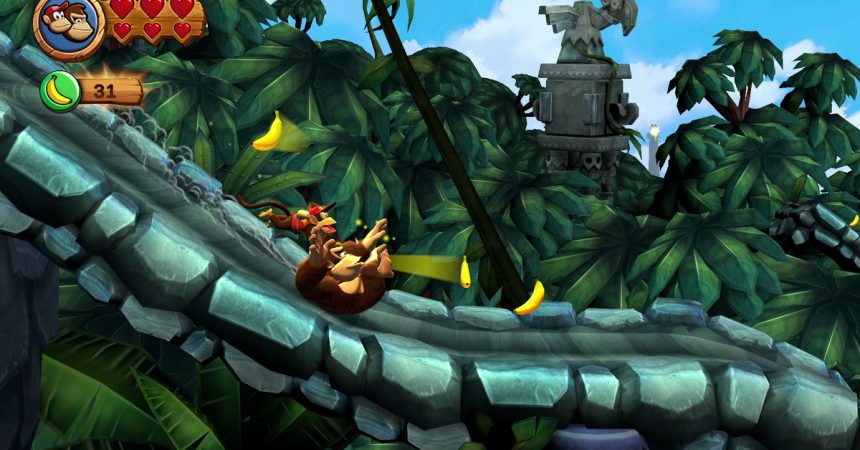Donkey Kong Country Returns HD, a remastered version of the acclaimed 2010 Wii platformer, has recently stirred controversy due to the omission of individual credits for the original development team at Retro Studios. While the game’s opening credits acknowledge Retro Studios’ contribution to the original Wii version, the specific individuals who poured their heart and soul into the game’s initial creation are absent from the HD remaster’s credit roll. This discovery, initially reported by GameSpot, sparked discussion and debate within the gaming community, leading to questions about proper attribution and the recognition of individual contributions within the collaborative process of game development.
Nintendo, the publisher of Donkey Kong Country Returns HD, has addressed the omission in a statement provided to Eurogamer. In the statement, Nintendo reaffirms its commitment to acknowledging the contributions of everyone involved in a game’s development. The statement emphasizes the value placed on the contributions of all staff members throughout the development process. However, the statement, attributed only to Nintendo and not to a specific individual within the company, stops short of providing a concrete explanation for the omission of individual Retro Studios staff members from the HD remaster’s credits. This lack of specific explanation leaves some ambiguity surrounding the circumstances that led to the credits oversight.
The HD remaster of Donkey Kong Country Returns was developed by Forever Entertainment, a company known for its work on ports and remasters of various video games. While Forever Entertainment’s role in bringing the enhanced version to modern platforms is duly credited, the absence of individual credits for the original Retro Studios team highlights a complex issue regarding the acknowledgment of creative contributions in game development, especially when it comes to ports and remasters. The question arises as to what extent the original creators should be recognized when their work is adapted or updated by a different studio. The current situation underscores the need for clearer industry standards and practices regarding crediting in such scenarios.
The controversy surrounding the credits for Donkey Kong Country Returns HD highlights a broader issue within the video game industry: the proper attribution of contributions in a collaborative and often complex development process. Game development involves the combined efforts of numerous individuals, from programmers and artists to designers, writers, and musicians. Each individual contributes their unique skills and expertise to the final product, and acknowledging these contributions is not only a matter of professional courtesy but also a crucial aspect of recognizing the creative effort involved in bringing a game to life. The current situation raises questions about how the industry values and recognizes the contributions of individuals, particularly in collaborative projects and subsequent adaptations.
The absence of individual credits for the original Retro Studios team raises further questions about the preservation of video game history and the recognition of individual contributions to the evolution of the medium. Game credits serve not only as a form of acknowledgment for those involved but also as a historical record of the individuals who shaped a particular title. Omitting these credits, especially in remasters or re-releases, can potentially erase or obscure the contributions of these individuals, making it harder to trace the lineage and evolution of specific games and the industry as a whole. This raises concerns about the long-term preservation of accurate and comprehensive records of video game development history.
The situation with Donkey Kong Country Returns HD underscores the need for greater transparency and clearer industry standards regarding the attribution of creative contributions in video game development. While Nintendo’s statement emphasizes the importance of acknowledging everyone involved, the lack of a specific explanation for the omission of Retro Studios’ individual credits leaves room for speculation and highlights the need for more concrete guidelines. The industry should strive for consistent and transparent practices to ensure that all individuals who contribute to a game’s creation receive proper recognition, both as a matter of professional courtesy and as a way to preserve the history of video game development. This would not only contribute to a fairer and more ethical industry but also help create a more comprehensive and accurate historical record of the individuals who have shaped the world of video games.



